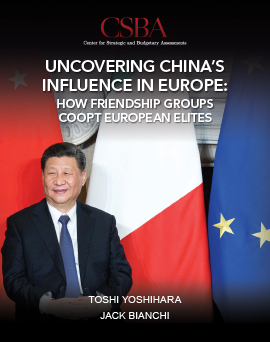
The Chinese Communist Party (CCP) seeks to shape the external environment to its liking through several means, ranging from coercive uses of military power to economic statecraft to influence operations. Beijing’s global campaign to influence perceptions and policies abroad, in particular, has drawn media attention and, increasingly, government scrutiny. In Europe, the CCP has opened a broad political front that could have implications for the region’s long-term policies toward China and for transatlantic relations. There is thus a growing need for policymakers on both sides of the Atlantic to better understand the goals, strategies, and methods of the actors that promote CCP influence in Europe.
In this study, Senior Fellow Toshi Yoshihara and Research Fellow Jack Bianchi examine how some European civic organizations, established ostensibly to foster ties with China, have helped to enhance the CCP’s power. Drawing from Chinese-language sources, the report assesses how “friendship groups” in Europe—and the coopted European political and business elites that lead them—serve as mouthpieces and intermediaries for advancing Beijing’s domestic priorities and foreign policy goals. Yoshihara and Bianchi conclude that European authorities and civil society are in a good position to implement measured approaches and policies to better understand, monitor, and push back against unwelcome aspects of Beijing’s influence campaign.



























